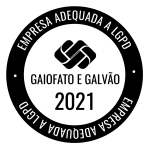In the relationship between companies and consumers, sometimes checks are used as the payment method for the products acquired or service provided.
The dynamics of the commercial relationship formed based on the purchase and sale between supplier and consumer may cause serious losses to the business owner, if no precautionary measures are adopted by the company providing products and services.
The Courts have already consolidated the understanding that even in cases of documental fraud by embezzlers, if the name of a consumer is listed in the credit protection agencies, the company is responsible for the damage caused to the consumer, and no fault can be imputed to third parties or to the financial institution.
In a recent judgment by the Santa Catarina State Higher Court (Civil Appeal No. 2014.023981‐7), a financial company was sentenced to the amount of twenty thousand Reais (R$ 20,000.00) for the undue protest of an instrument, wherein the person who had their name listed in the defaulters’ register did not even hold an account in said bank, making the fraud created by third parties very clear.
In such recent decision, the Judge understood that “The chance of a third party having been responsible for the negotiation on behalf of the injured consumer does not, likewise, rule out the liability of the respondent, since in such circumstance it would be a mere consequence of the failure to provide the service, consisting of lack of endeavor in ascertaining the authenticity of the documents (…)”.
The same responsibility of the financial institution also lies with the companies, which, when receiving checks from embezzlers, without assessing the documents presented upon the commercial transaction, in case of absence of clearance, takes the instrument to protest.
Often companies sell without verifying the documentation that is being presented, which is characterized as a failure in the provision of the services, due to the lack of any attention to the personal documents presented upon the transaction.
Such responsibility arises from the application of article 14 of the Consumer Protection Code, and it must bear the risks presented by such activity. It would not be the case of an adverse sentence if it is proven that the company has took all necessary measures prior to the sale, so as to assess the documents, compare signatures, etc., which could be a reason to rule out any fault, provided that there are no defects in the provision of the services.
In view of the recent judgments of the Courts and understandings of the Superior Court of Justice, it is necessary that companies, prior to finalizing business transactions or protesting instruments, verify the origin of the documents and signatures, verify checks, that is, adopt the minimum measures so that in the future, in case of court action, they can demonstrate they protected themselves and adopted all measures expected from companies in order to prevent losses for consumers and, consequently, preserve the good corporate name.





